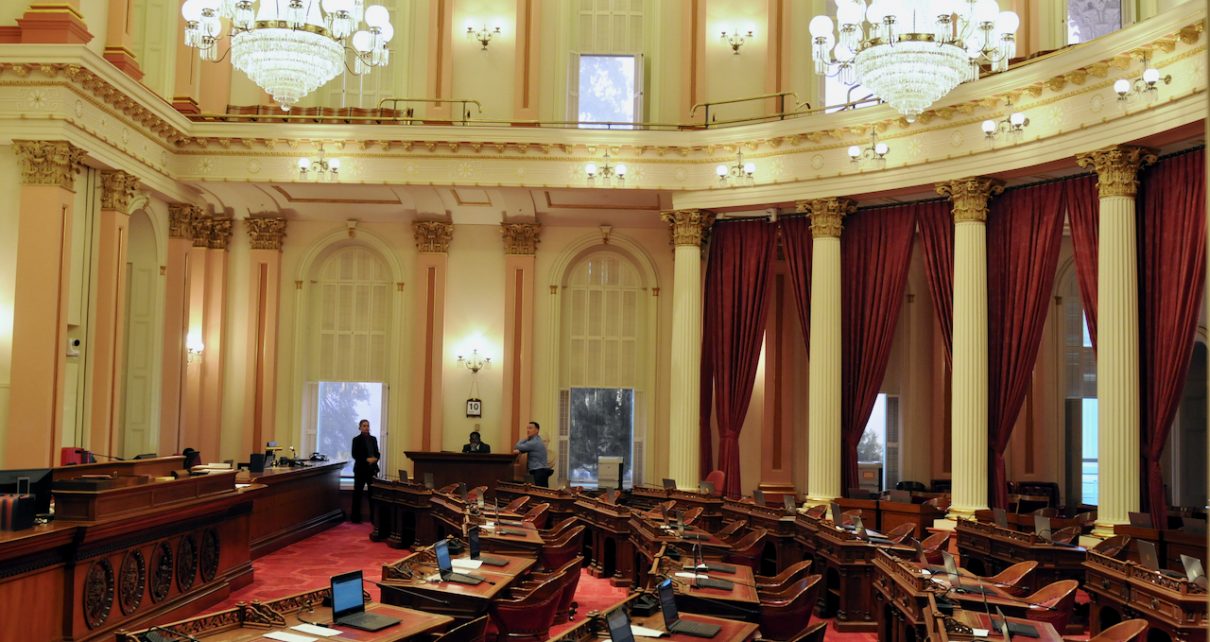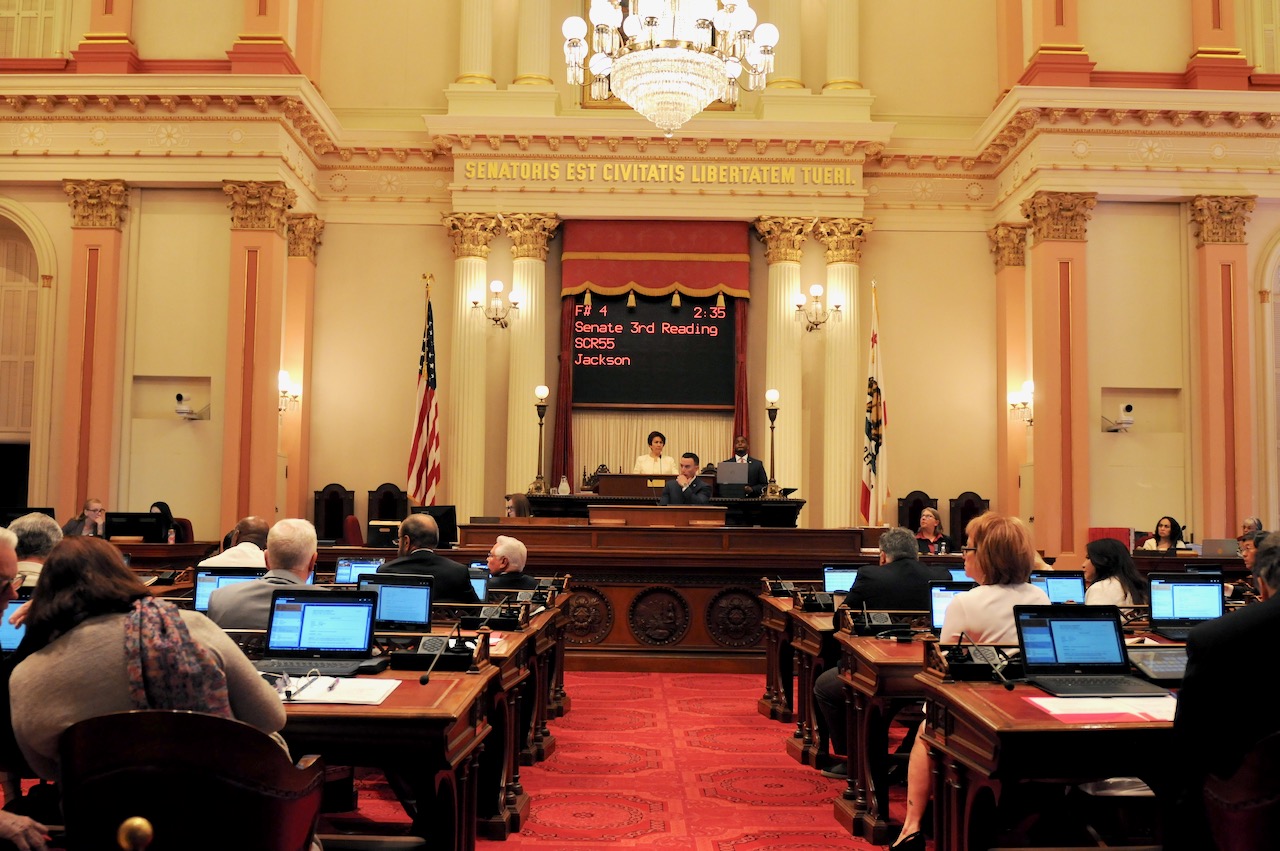
California Senate Chambers. (Photo: Kevin Sanders for California Globe)
Frequently Asked Questions about Crimes against the Legislative Power
Does California prohibit so-called crimes against the legislative power?
By Chris Micheli, June 14, 2024 2:30 am
Does California prohibit so-called crimes against the legislative power? Yes, these provisions are found in Article III, Sections 9050 to 9056, of the California Government Code and are intended to combat crimes against the Legislature and the legislative process.
Can someone prevent the Legislature from meeting? Government Code Section 9050 provides that every person who willfully, and by force or fraud, prevents the Legislature, either of the houses composing the Legislature, or any of its members from meeting or organizing is guilty of a felony.
What happens if someone disturbs the Legislature while in session? Government Code Section 9051 provides that every person who willfully disturbs the Legislature, or either of the houses composing the Legislature while it is in session, or who commits any disorderly conduct in the immediate view and presence of either house tending to interrupt its proceedings or impair the respect due to its authority is guilty of a misdemeanor.
Can someone alter drafts of legislative measures? Government Code Section 9052 provides that every person who fraudulently alters the draft of any bill or resolution which has been presented to either of the houses composing the Legislature for passage or adoption, with intent to procure it to be passed or adopted by either house, or certified by the presiding officer of either house, in language different from that intended by the house, is guilty of a felony.
Can someone alter enrolled bills or resolutions? Government Section 9053 provides that every person who fraudulently alters the enrolled copy of any bill or resolution which has been passed or adopted by the Legislature, with intent to procure it to be approved by the Governor, certified by the Secretary of State, or printed or published by the State in language different from that in which it was passed or adopted by the Legislature is guilty of a felony.
Can someone publish an altered bill or resolution? Government Code Section 9053.5 provides that every person who intentionally, maliciously, with knowledge of the falsity, and with intent to defame a particular legislator, publishes or causes to be published any writing which purports to be a facsimile of an actual bill or resolution, or any part thereof, of the California Legislature, which is not an exact copy of a bill or resolution, or part thereof, which has been introduced in the Legislature, is guilty of a misdemeanor.
Is there an exception to publishing bills or resolutions? This Government Code section does not apply to the print media, the electronic media, or to news services.
Can anyone obtain something of value from a legislator? Government Code Section 9054 provides that every person who obtains, or seeks to obtain, money or other things of value from another person upon a pretense, claim, or representation that he or she can or will improperly influence in any manner the action of any member of a legislative body in regard to any vote or legislative matter, is guilty of a felony.
What happens if a legislator is convicted of a crime against the legislative power? Government Code Section 9055 provides that every member of the Legislature convicted of any crime defined in this article, in addition to the punishment prescribed, forfeits his or her office and is forever disqualified from holding any office in the State of California.
Can someone be paid after having gotten a legislative measure introduced or amended and attempt to pass or defeat that measure? Government Code Section 9056 provides that any person who secures through his or her influence, knowingly exerted for that purpose, the introduction of any bill, resolution or amendment into the State Legislature and thereafter solicits or accepts from any person other than a person upon whose request he or she secured such introduction, any pay or other valuable consideration for preventing or attempting to prevent, the enactment or adoption of such measure, while it retains its original purpose, is guilty of a crime and upon conviction is punishable by a fine of not exceeding $10,000 or by imprisonment in a county jail for not more than one year, or by both that fine and imprisonment.
- Conservation Banks - February 22, 2026
- Mergers of Unincorporated Associations - February 21, 2026
- A Historic Look at Bill Introductions in the California Legislature - February 21, 2026



